Podcast Themes
Multiple perspectives on a topic that you are curious about!
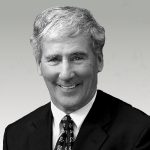
Alan speaks about how Bill and leaders at Google deal with super-star performers who can have enormous impact given their talent can be leveraged and multiplied with technology. He specifically speaks about what to watch out for as determine if we should put up with the complexity or the toxicity that’s caused by the employee.
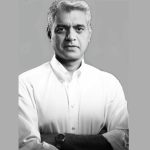
Anyone who wants to join the Indian Armed Forces as an officer has to go through the Service Selection Board (SSB). The ultimate goal is to select people with Officer Like Qualities (OLQs). Thus, the focus is on hiring based solely on potential rather than experience or academic qualifications. Our digital world is also moving towards potential-based hiring. Hear how the corporate world can learn some lessons from the SSB.

Stephen speaks about how we can tune into micro-moments where we get a glimpse of what somebody might be capable of. He says that if we don’t look for it, we will never find it. He goes on to talk about the four steps involved in unlocking the potential of the person – See, Communicate, Develop, Unleash.

Stephen speaks about five underlying beliefs that are at the heart of a Trust and Inspire approach. 1) People have greatness inside of them 2) People are whole in body, heart, mind and spirit 3) There is enough for everyone (abundance) 4) Leadership is about responsibility, not rights (stewardship) 5) My job as a leader is to go first

Chris speaks about how people were talking about Roger’s potential when he was just 13 or 14. He speaks about how Regis Brunet saw Roger in action in Florida and then immediately ran to the payphone to get hold of Roger’s parents back in Switzerland.

Darleen speaks about the challenges in hiring effectively in the remote world. Atul Bhandari, Ritu Kochhar and Rohit also share their perspectives around how we need to tap into stories much more in these times and how remote work has opened up the aperture in terms of where people look for talent. They also share an interesting perspective around how companies are thinking about experience versus potential in these times.
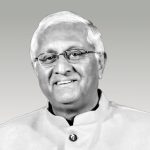
RG speaks about his experiences from having made around 200 odd CEO appointments in his years as a mentor and as a Board Member. He goes onto say that his hit-rate might only be around 50-60% over the years. He shares some principles around how we can build robustness in hiring decisions and how we can think about experience, competency and potential as we evaluate different types of candidates.

Sudhir speaks about Judgment, Influence and Drive as the three markers of potential and how the emphasis shifts across these three during the career of a professional in HUL. For the first few years it is Drive, then it moves to Influence and eventually in senior management it is judgment. He also speaks about how HUL thinks about what is a considered a good hit rate with judgment. He goes on to speak about how HUL filters for caliber and character, often two orthogonal dimensions.

Rich talks about how Google things about spotting potential and about Leadership Development. He quotes an interesting statistic from a piece of research by Corporate Leadership Council. He said that they found that that in 71% of the time people who are high performers were not high potentials but conversely 93% percent of high potentials are also high performers. He also goes on to talk about “Googliness” a term that encapsulates some of the softer aspects of an individual that flourishes inside Google.
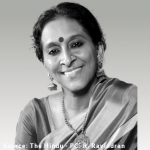
Jayashri talks about her chance meeting with Shri Lalgudi Jayaraman and how that changed everything for her. She discusses the faith that he had in her when he asked her to learn music under his guidance and how that instilled a sense of responsibility for her to stay committed to the path.
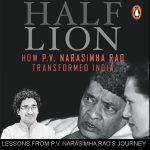
Vinay talks about how Narasimha Rao picked his team members and think about the portfolio of capabilities in his team. He specifically alludes to the fact that he was self-aware about what he knew and didn’t know and was able to hire best in class talent without feeling insecure. He also talks about how Narasimha Rao brought in diversity of thought across various topics to ensure it was a balanced team.

Jay discusses what a “lambi race ka ghoda” looks like in Politics. He also talks about the role of circumstance playing a much bigger role in Politics than in other domains. He talks about how effective politicians stay relevant by appealing to different segments over time as the public sentiment shifts over time.